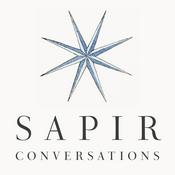When KIND Snacks founder Daniel Lubetzky looks at a glass of water, he doesn’t see it as half empty or half full. He sees an opportunity to fill up the cup.
In this SAPIR Conversation with Rabbi David Wolpe, Lubetzky explains how this mindset shaped his journey from arriving in the United States as a 16-year-old immigrant to becoming a multi-billion-dollar entrepreneur who founded one of the most recognizable health food brands in the country. This success propelled him onto the hit TV series Shark Tank as one of the “sharks” and into a life as a social entrepreneur, investor, philanthropist, author, and civic leader. Above all, Lubetzky is a builder. As the son of the Holocaust survivor, he views it as his mission to build bridges across seemingly impossible divides – and encourages us all to use our power to do the same.
Read the SAPIR essays and op-eds referenced in this SAPIR Conversation and reach out to us at
[email protected]:
Ilana Horwitz’s SAPIR essay on Poverty and Jewish Community: https://sapirjournal.org/money/2025/poverty-and-jewish-community/
Daniel Lubetzky’s Washington Post op-ed, The lessons I carry from my Jewish grandfather: https://www.washingtonpost.com/opinions/2025/11/28/antisemitism-jewish-penny-portnoy-entrepreneur/
Music from #Uppbeat: https://uppbeat.io/t/theo-gerard/monsieur-groove



